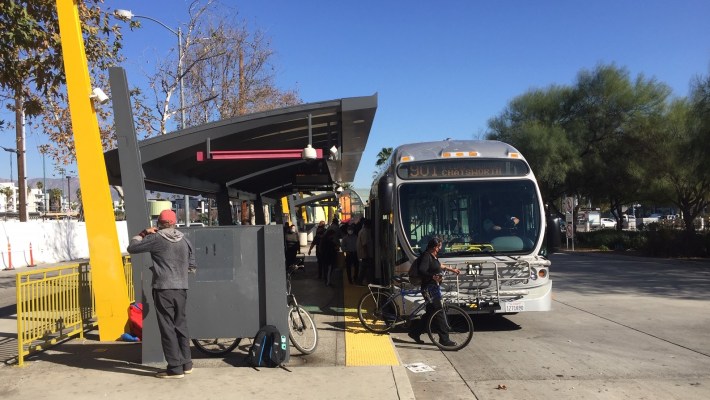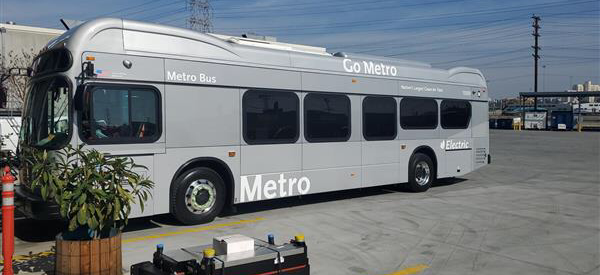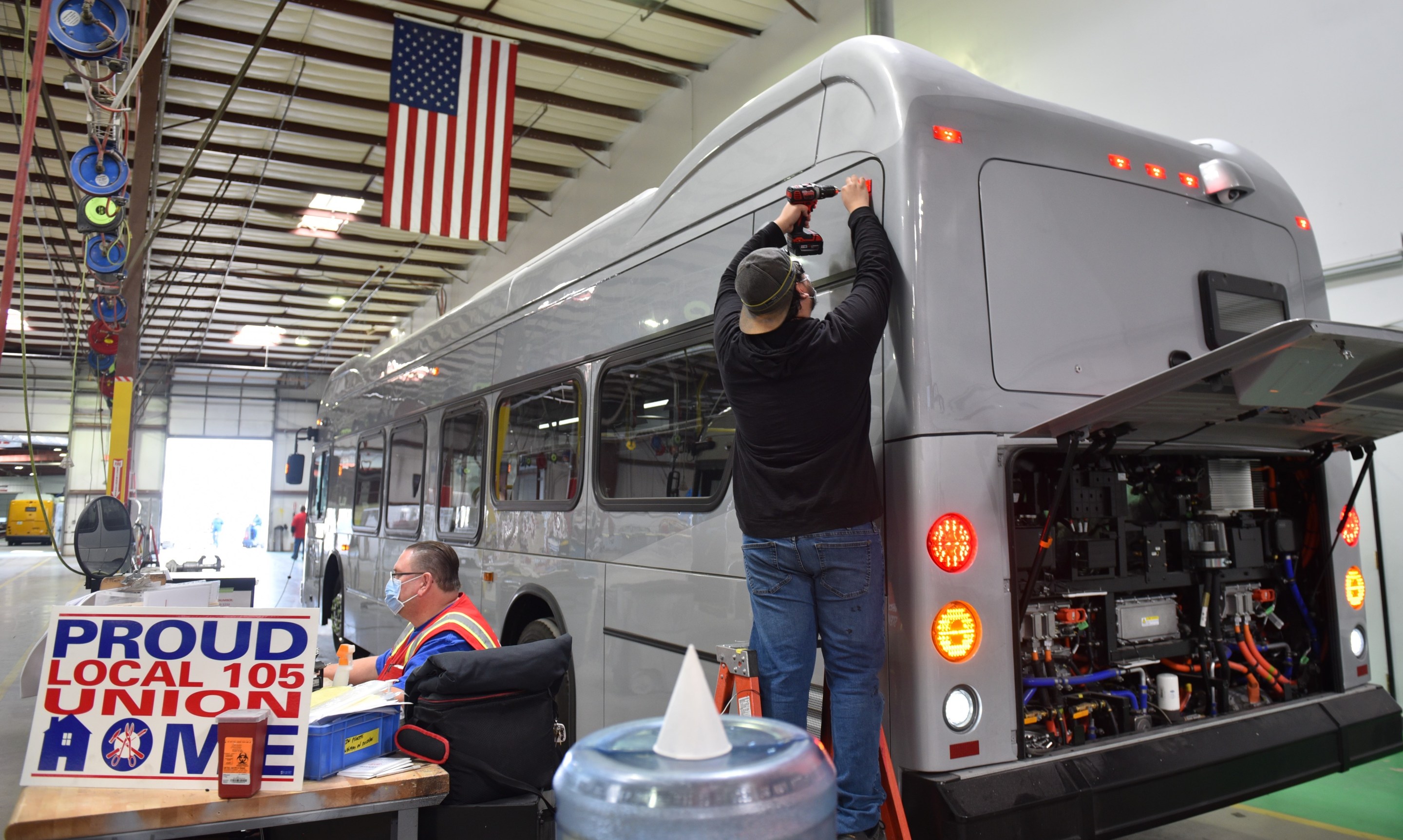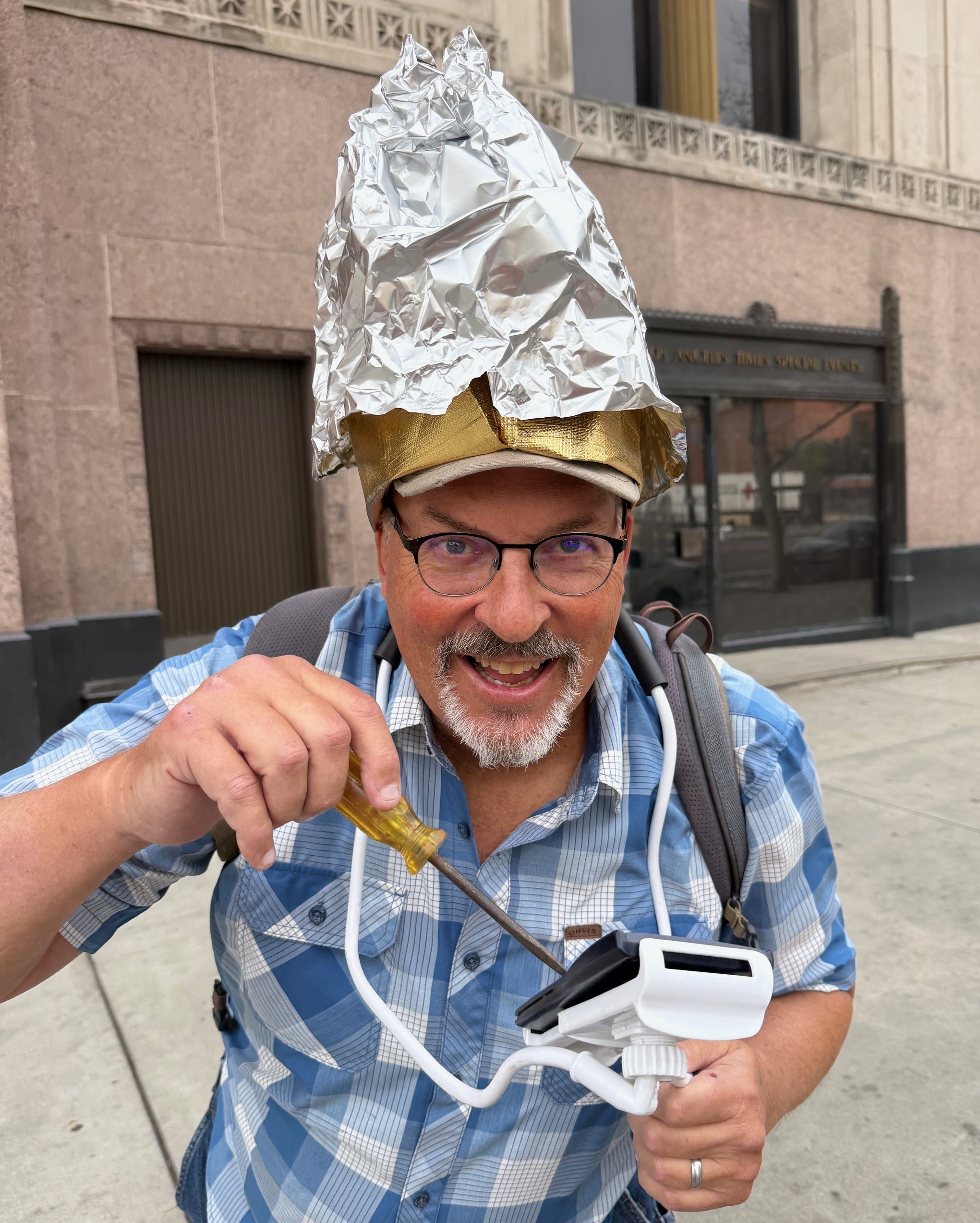
Bus electrification has numerous benefits: cleaner air, reduced greenhouse gas emissions, improved public health, and reduced noise impacting riders, operators and communities. Though many transit agencies, prominently including Foothill Transit, are proceeding with electrification, these buses remain a relatively new technology, so Metro will be an important proving ground.
In 2017, as part of Metro's commitment to electrify its entire bus fleet by 2030, the board approved two electric bus pilots on its Bus Rapid Transit lines. At that time, the G (Orange) Line was scheduled to be all electric buses by June 30, 2020, and the J (Silver) Line was initially scheduled to be all electric by June 30, 2021.
Unfortunately Metro's nascent electrification efforts are proceeding all too slowly.
When Metro faced funding shortfalls – for project acceleration and due to the COVID-19 recession – Metro staff have been quick to propose saving money by delaying electrification. Last year, Metro applied for a state transit capital grant for new electric buses and charging infrastructure, but the $105 million Metro request was not funded.

Delays on G Line electrification
In early July 2020, Metro announced that G Line full electrification had been pushed back from June 30, 2020, to December 31, 2020. Metro quietly debuted its first G Line electric bus in late July - one electric bus nearly a month after full G Line electrification had been scheduled.
Metro has now missed the December 2020 revised completion date. As of last weekend, there were still plenty of compressed natural gas (CNG) buses operating on the G Line.
In a February 8 email to Streetsblog, Metro spokesperson Rick Jager omitted giving a new expected date for full G Line electrification. Per Jager, though North Hollywood and Canoga charging stations are complete and in operation, the Chatsworth charging station construction is "nearing completion" (in July 2020 Jager reported the same status for Chatsworth) and "expected to be complete by mid-February" after which a "power connection from LADWP is expected within five weeks." Acceptance testing will follow that, then electric buses will be put into service.
Jager stated that Metro has received all forty 60-foot electric buses, manufactured by New Flyer, and "about 50 percent or so" are already "in daily operation." Per Jager, reactions from operators and riders have been very positive. "Operators like the performance, handling, climate control" and, Jager wrote, "passengers appreciate the better ride quality, quietness, and amenities (USB chargers, Wi-Fi) as well as better air conditioning."

Delays on J Line electrification
The scheduled June 30, 2021, full J Line electrification is not going to happen.
Jager stated that Metro's "goal" is now all electric buses on the J Line by the end of calendar year 2021, "however the plan and schedule for its conversion are still in development" with "no timeframe yet on the first electric bus deployment on the J Line." When asked about Metro's plan to implement Boardmember Janice Hahn's motion (approved last October) to ensure that J Line electrification would include serving her harbor area, Jager stated that that "is still under development as well."
In 2017, Metro contracted with manufacturer BYD for 60 electric buses. Jager reports that Metro "did receive the first BYD 40-foot electric bus the last week in January" and that Metro intends to "validate its performance on a number of lines."
In an email to Streetsblog, BYD spokesperson Jim Skeen reports that similar BYD 40-foot K9M buses are already used by the Antelope Valley Transit Authority and Long Beach Transit, as well as at Hartsfield-Jackson International Airport in Atlanta, GA., the Toronto Transit Commission, UCLA and UC Irvine. Skeen stated that BYD has now "delivered the first two of five pilot buses for the Silver Line and will soon be delivering the balance of the Silver Line pilot buses and five buses for the Orange Line."
Bigger picture electrification delays
L.A. Mayor and current Metro Board Chair Eric Garcetti, who has been an electric vehicle early adopter and champion, pressed for that commitment and still stands by it. Garcetti spokesperson Harrison Wollman stated, via email to Streetsblog, “Mayor Garcetti believes that electrifying our transportation sector presents a massive opportunity — to tackle the climate crisis, reverse generations of inequities, improve public health, and generate widespread prosperity across our region. The Mayor and Metro staff share a deep commitment to sustainability, and he expects them to do everything in their power to meet Metro’s goal of full electrification by 2030.”
One big problem is that Metro pushing back all these early steps also ends up pushing back later ones. Metro’s 2030 electrification schedule had hinged on a 2019-2020 technology assessment, a Spring 2020 Zero Emission Bus Master Plan update, and a new electric bus procurement. This year's and last year's electric bus delays have meant no assessment completed, no procurement yet, and no new electric buses in the pipeline.
Metro will need to start meeting some electrification deadlines - and really step up its efforts - for the agency to meet its 2030 plan.







